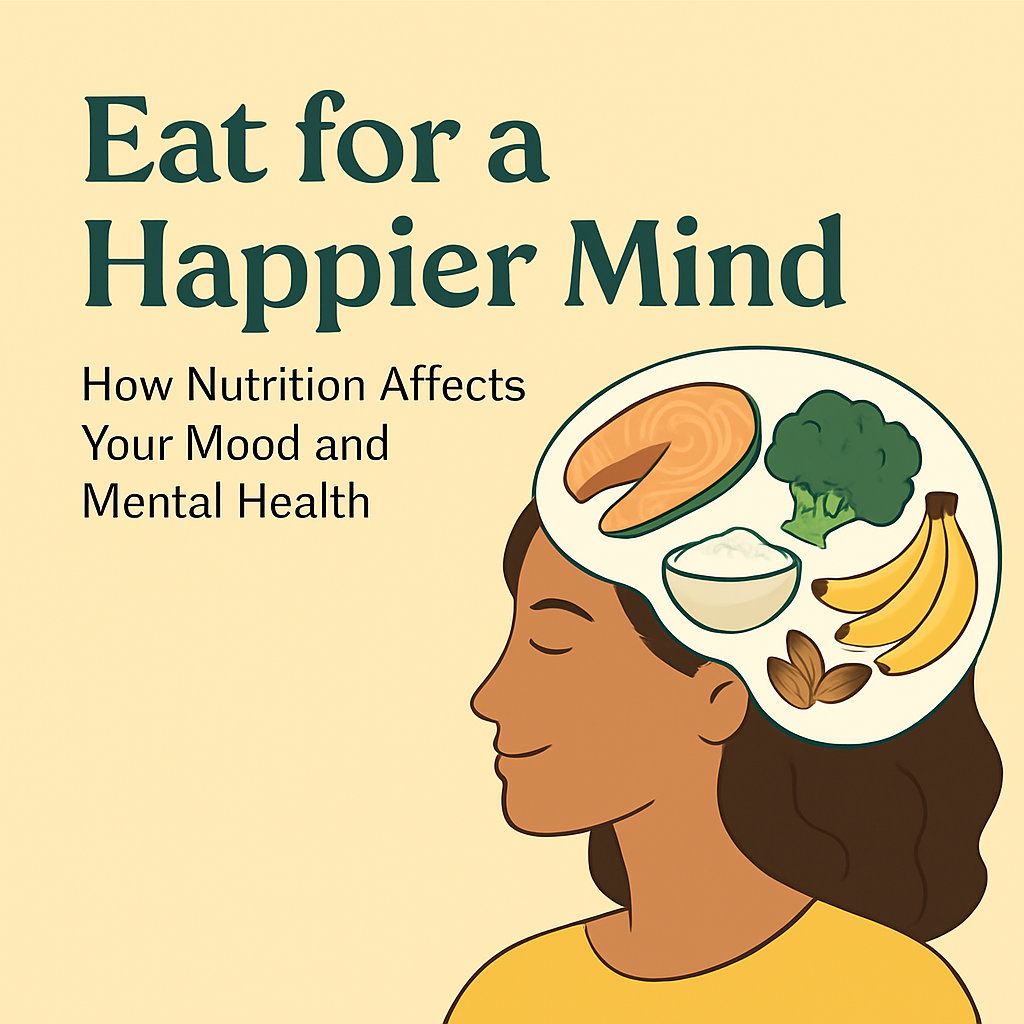Eat for a Happier Mind: How Nutrition Affects Mental Health

When it comes to feeling your best, your diet plays a far bigger role than most people realise. The connection between what you eat and how you feel is powerful — and science is catching up to what ancient healing systems have always known: you are what you eat, both physically and emotionally.Let’s explore how nutrition can impact your mood, stress levels, and overall mental health — and what you can do about it today.
The Gut-Brain Connection :
Your brain and gut are deeply interconnected via a network called the gut-brain axis. This system allows the brain to influence digestion, and your gut to influence your thoughts, emotions, and behaviour. The gut is often called the second brain because it produces over 90% of the body's serotonin — the “feel good” hormone that regulates mood, sleep, and appetite.When your gut health is compromised (due to processed foods, stress, antibiotics, etc.), it can lead to inflammation, anxiety, low mood, and brain fog.
Key Nutrients That Support Mental Wellness :
1. Omega-3 Fatty Acids
- Reduce inflammation and support brain structure.
- May help reduce symptoms of depression and anxiety.
- Sources: Fatty fish, walnuts, flaxseeds, chia seeds.
2. B Vitamins (B6, B9, B12)
- Crucial for neurotransmitter production.
- A deficiency can lead to low energy and irritability.
- Sources: Leafy greens, legumes, eggs, dairy, whole grains.
3. Magnesium
- Known for its calming effect on the nervous system.
- Low magnesium is linked to anxiety and poor sleep.
- Sources: Nuts, seeds, spinach, dark chocolate.
4. Tryptophan
- An amino acid that converts to serotonin.
- Needs carbohydrate pairing to cross into the brain.
- Sources: Oats, curd, bananas, lentils, tofu.
5. Probiotics & Prebiotics
- Support healthy gut flora which influences mood.
- Probiotic sources: Curd/yogurt, fermented idli/dosa batter, kanji.
- Prebiotic sources: Garlic, onion, cooked-cooled rice, banana.
Eating Patterns That Help :
Some dietary styles are especially supportive of mental health:
- Mediterranean Diet: Rich in veggies, olive oil, legumes, and fish.
- Anti-Inflammatory Diet: Reduces refined carbs, sugar, and processed foods.
- Low Glycemic Load Diet: Keeps blood sugar stable to avoid energy crashes and mood swings.
Foods That Can Harm Your Mental Health :
Be mindful of foods that may disrupt gut health and mood stability:
- Refined sugars and ultra-processed snacks
- Artificial sweeteners and additives
- Excess caffeine or alcohol
These can lead to mood swings, poor sleep, and even depressive symptoms over time.
Practical Tips You Can Start Today :
- Add curd or a fermented food to at least one meal daily.
- Include a mix of protein, fiber, and good fats in each meal.
- Eat at regular intervals (every 3–4 hours) to avoid mood dips.
- Try a “food and mood journal” to track how different meals affect your emotions and energy.
Final Thoughts :
Mental health isn't just in your head — it's in your gut, your plate, and your daily habits. A balanced, nutrient-dense diet is a powerful tool for improving your mood, resilience, and emotional well-being.
Need a Personalised Plan?
If you're feeling anxious, overwhelmed, or mentally drained — your nutrition could be a hidden reason.
I help people eat in a way that supports both their mind and body.
Send a message here or DM me “BALANCE” on Instagram to work with me.
